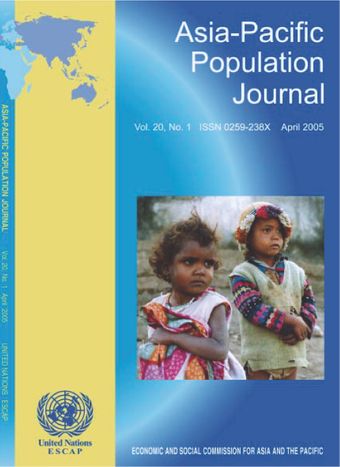-
Assessment of fertility behaviour change in the sociocultural context of Pakistan: Implications for the population programme
- Source: Asia-Pacific Population Journal, Volume 20, Issue 1, نوفمبر ٢٠٠٥, p. 13 - 36
-
- ٠٣ نوفمبر ٢٠٠٥
Abstract
The process of change in fertility behaviour has been explained by social scientists in a variety of contexts. They give diverse interpretations of the reasons underlying these changes. A number of theories and arguments put forward on the subject contend that the level of socio-economic development on one hand and the quality of family planning services on the other are primarily responsible for reducing fertility levels in a society. The available literature however suggests that social values and cultural precepts play an important role in shaping the reproductive attitudes of couples and that this factor ultimately affects fertility outcomes. Hence, it is important that, in developing programme strategies, the local social and cultural context of the setting being studied be taken into account (Coale, 1973; Pollak and Watkins, 1993; Sultan, Cleland and Ali, 2002 and Stephenson and Hennink, 2004).





